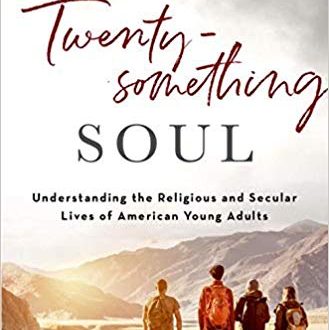
Who do you trust?
Everything fell to pieces six weeks into what should have been my dream life. I had spent years working toward this season, and yet I watched as everything collapsed around me. With each passing day, I sought to hold onto what I believed was God’s path for my life, despite the dysfunction, medical diagnoses, isolation, and rejection that surrounded me. I attempted to stay focused on what I knew to be God’s truth, but God seemed distant and silent. As I trudged through life, the weeks turned into months of uncertainty and silence. I spiralled as the burning question of “why?” remained unanswered. I slowly stopped trusting the Lord for answers, and instead self-reliance became my survival guide.
Who do you trust when the dream becomes a nightmare, or when the test results come back negative? Who do you turn to when you cannot face one more moment of bickering and rivalry, or when the one person who knows you best walks away?
If we are completely honest, the first name to come to mind is our own. At the end of the day when life is uncertain, who better to trust than me, myself and I? We show up. We make things happen. Trusting ourselves seems like our best, and sometimes only option when life throws us circumstances we fail to understand. In the end, however, self-reliance becomes our biggest downfall.
Solomon writes this poignant wisdom to his sons regarding this matter, “Trust in the Lord with all your heart, and do not rely on your own understanding. Acknowledge him in all your ways and he will make your paths straight” (Prov 3:5-6).
The command seems pretty simple, right? Trust the Lord. Yet, with this simple command and a warning, Solomon immediately magnifies the danger of misplaced trust. “Do not rely on your own understanding,” he urges (3:5). No doubt, his sons would have said, “Of course we trust the Lord! But, we….” The moment we insert ourselves into the equation of trust, our trust becomes divided and fragmented.
We easily fall into the divided trust trap. When unknowns weigh on us, we seek relief and answers. We turn to the Lord for clarity, but when answers fail to come quickly, our prayer life decreases. We leave our Bible on the shelf and reach for the remote control to escape. We skip church and isolate ourselves from God’s people. Self reliance creeps into the corners of our fragmented trust and breeds unhealthy habits.
Solomon warns his sons that fully resting on their own wisdom is futile, and the antithesis of a life lived in wholehearted trust in the Lord. Solomon goes as far as to say, “Whoever trusts in his own mind is a fool” (Prov 28:26).
Trust is the complete dependence or reliance on something or someone for guidance or help. Trust requires putting yourself at the mercy of another person for security. The Lord alone must be the one person whom we trust with such devotion (Prov 3:5).
How do we accomplish such wholehearted trust in the Lord?
Solomon answers, “Acknowledge him in all your ways and he will make your paths straight” (Prov 3:6). To acknowledge the Lord is to know the Lord. As a favorite Seminary professor of mine taught, we know the Lord best by cultivating an exhaustive understanding of who he is through his Word (the Bible), his world (creation), and his works.
Cultivating a relationship with the Lord requires showing up amid the day in and day out mountain tops and mundane of life. The more we get to know God, the more we fall in love with him. He reveals himself to be perfectly trustworthy no matter the circumstance. As our understanding of God grows, we are compelled to trust him the next time life seems uncertain.
Your life is guaranteed to see bumps, switchback turns, and deep valleys. As we grow to understand and experience the Lord in our life, however, the Lord provides what Solomon calls “straight paths” (Prov 3:6). God’s desired end, or straight paths, includes a relationship with you, his image bearer (Gen 1:27).
Trust is a double sided coin. On one side, you have the decision to trust – a choice. The other side of the coin is the habit of trust – a commitment. Complete trust is a commitment to renounce self reliance and choose to cultivate your knowledge of God, even amid grief, stress, anxiety and depression.
How can you “acknowledge the Lord” in your own life?
- His Word: Join a Bible study with a good friend or download an audio Bible app to listen to while you wash dishes
- His World: Enjoy a hike through the woods or sit by the ocean and listen
- His Works: Read the Gospel accounts of Jesus’ ministry or journal about the ways God has worked in your life
During my days of self reliance, many people challenged me to simply “trust the Lord.” Amid the turmoil, however, it was much easier said than done. Trusting fully required small choices. At first, I sat by the ocean in the quiet of creation. I started to sing again. I stopped sleeping in on Sunday morning. I returned to my favorite Bible passages. In time, I began to see God’s hand among each component of my heartache. Over a decade later, while I still struggle to trust, the unknowns do not seem so daunting with a known God by my side.




